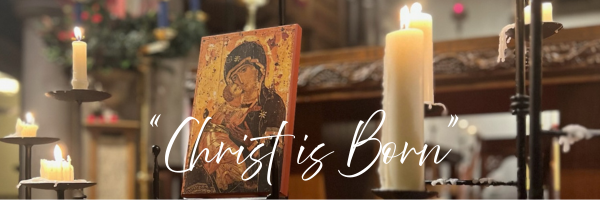St. Paul's on the Green
Welcome to St. Paul’s on the Green! A diverse, affirming, inclusive Episcopal community sharing God’s Radical Welcome.

Christmas at St. Paul's on the Green
Christmas Eve – December 24
3:00 pm - An Intergenerational celebration with Choristers
6:00 pm - Festive Eucharist with the full St. Paul’s Choir (5:30 pm Prelude) 모
11:00 pm – Candlelight “Midnight Mass” Eucharist with Adult Choir 모
Christmas Day – December 25
11:00am - Traditional festive liturgy of lessons, carols, and Holy Eucharist 모
New Year's Eve - December 31
New Year's Eve Service with Burning Bowl 모
Weekly Worship Schedule
Sunday:
Holy Eucharist 9 & 11 am
Compline by Candlelight 8 pm
Weekdays:
Monday - Morning Prayer 8:30 am - Online
Tuesday - Morning prayer 8:30 am - on Zoom
Wednesday - Holy Eucharist 11:30 am - in Person and Online
Thursday - Morning prayer 8:30 am - on Zoom
Friday - Morning prayer 8:30 am - Online
Planning A Visit
What to Expect
FAQVisiting for the first time? Find answers to some commonly asked questions here.
Parking & Directions
DirectionsParking is available in our lot on both sides of the Chittim-Howell house. Additional parking on Sundays is available on both sides of St. Paul’s Place, the street that runs in front of St. Paul’s at the top of the Norwalk Green, along the Norwalk Green on Park Street and continuing past St. Paul’s Place, adjacent to our grounds. On Sundays additional street parking is available along East Avenue.
Accessibility
MoreSt. Paul’s believes in a Radical Welcome for all people, no matter their race, gender, sexuality, socioeconomic status, or ability. If you would like to schedule a visit to our grounds and have any concerns about accessing our campus or participating in our worship or events, please reach out to our church office (admin@stpaulsnorwalk.org or 203-847-2806) to let us know how we can better welcome you.
On the Grounds
ExploreThe grounds of St. Paul's are open everyday during daylight hours. Come and explore!
Partners at St. Paul's on the Green
St. Paul's is also home to many outside groups including Rising Stars Performing Arts, Suzuki Music Classes and Watch Me Grow Daycare. There are also regular Yoga classes and Recovery groups that meet each week on campus. Contact the parish office for information on how to connect with any of these groups.



